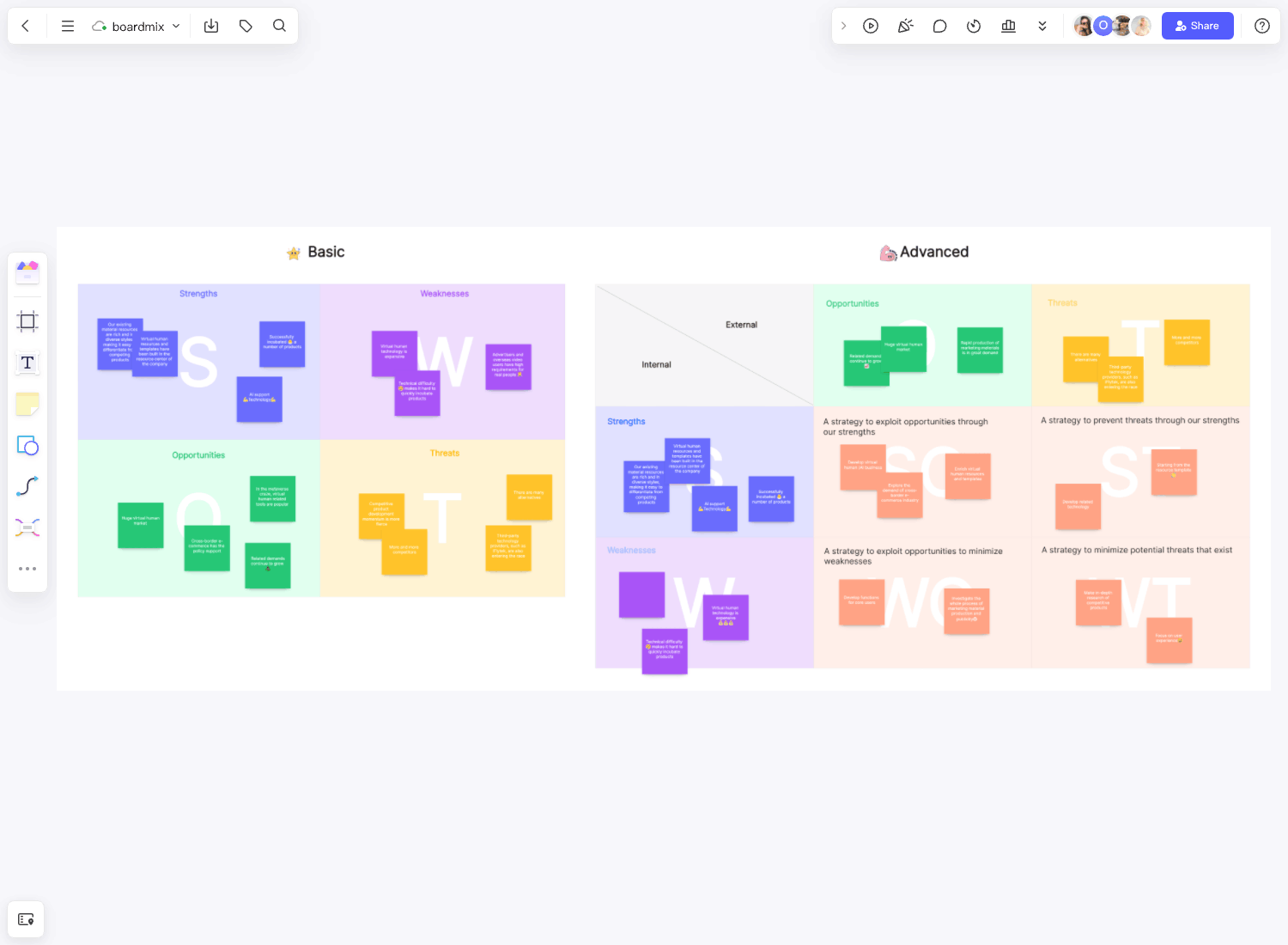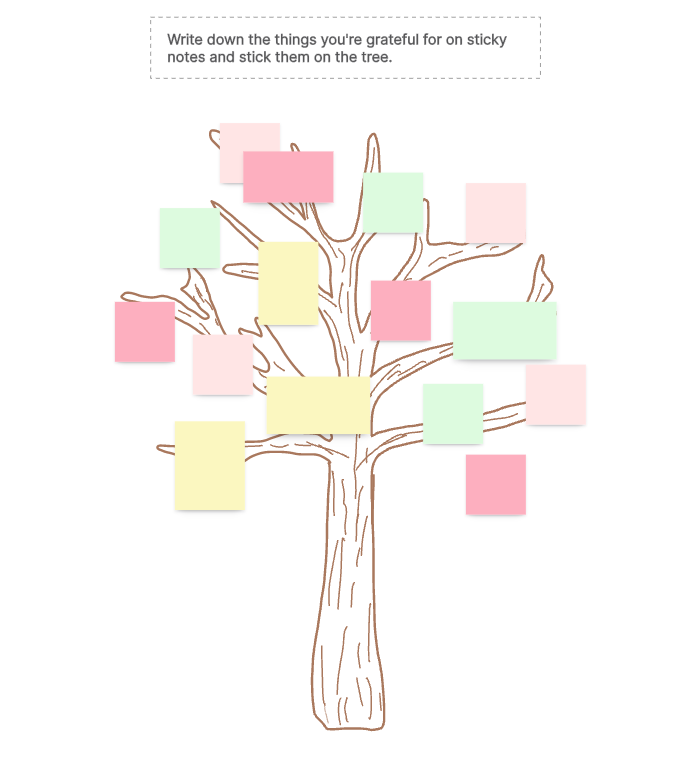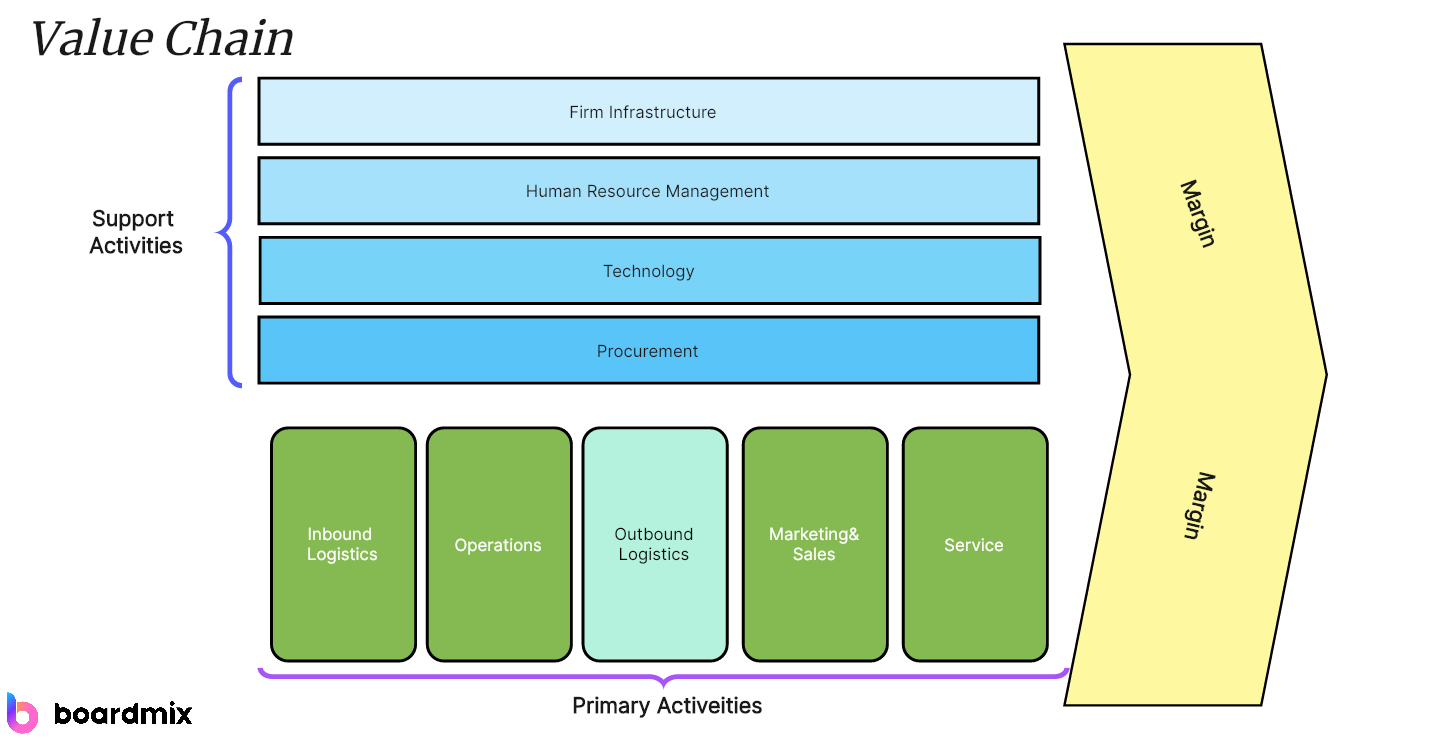In today's dynamic and competitive business landscape, the importance of building effective project teams cannot be overstated. These specialized groups are the backbone of any successful organization, capable of navigating complex tasks, fostering innovation, and driving growth. They bring together diverse skills and perspectives to tackle challenges head-on and deliver results. This comprehensive guide aims to delve into the concept of a project team - its definition, roles, composition - and provide actionable insights on how you can empower such a team for maximum efficiency and productivity. Whether you're a seasoned leader or just starting out, understanding these fundamentals can significantly enhance your team management strategy.
Part 1. What Is Meant by a Project Team?
A project team is essentially a dynamic assembly of individuals who unite their efforts towards a shared objective - the successful completion of a specific project. Each member of this collective brings to the table unique skills, expertise, and perspectives that contribute to various facets of the project. The diversity in skill sets fosters creativity and innovation, enabling the team to tackle challenges from different angles and find effective solutions. The composition of a project team isn't static; it can vary significantly depending on several factors such as the nature, complexity, and scope of the project at hand. For instance, a small-scale project may require a compact team with generalist skills, while larger, more complex projects may necessitate a larger team with specialized roles. This flexibility allows for optimal resource allocation and efficient task management within the project lifecycle.
Part 2. What Is the Role of a Project Team?
The primary role of a project team extends beyond just executing tasks; it involves a multi-faceted approach to ensure the project's success. This includes meticulous planning, where the team outlines the project's scope, objectives, and strategies. Execution follows, where they implement these plans while adapting to any changes or challenges that may arise. Monitoring and controlling are continuous processes where the team assesses progress against set benchmarks, identifies deviations, and takes corrective actions as needed. The final stage is closing the project, which involves evaluating performance, documenting lessons learned, and celebrating successes. Throughout this journey, the team is responsible for meeting deadlines and staying within budget constraints without compromising on quality standards. They also strive to fulfill all objectives outlined in the project plan. This comprehensive approach ensures that projects are not only completed efficiently but also effectively - delivering value to stakeholders and contributing positively towards organizational goals.
Part 3. Who All Are There in a Project Team?
A typical project team comprises a diverse set of roles, each contributing to the project's success in unique ways:
Project Manager: The project manager is the captain of the ship, overseeing the entire process from inception to completion. They are responsible for planning, coordinating, and ensuring that the project stays on track and within budget.
Team Members: These are the individuals who carry out the tasks associated with the project. They bring their unique skills and expertise to bear on various aspects of the project, contributing significantly to its successful execution.
Stakeholders: Stakeholders are individuals or groups who have a vested interest in the outcome of the project. This could include internal stakeholders like employees and management, or external ones such as customers, suppliers, or investors.
Sponsors: Sponsors provide resources necessary for carrying out the project. This could be financial support, human resources, or other types of assets that contribute to achieving the project's objectives.
Consultants: In some cases, consultants may be brought in to offer specialized expertise not available within the team. Their role can vary widely depending on what specific knowledge or skills they bring to the table.
Subject Matter Experts (SMEs): These individuals possess deep knowledge in specific areas relevant to the project and can provide valuable insights and guidance throughout its lifecycle.
Each role plays an integral part in ensuring that projects are carried out effectively and efficiently towards their successful conclusion.
Part 4. How to Empower Project Team
Now that we understand what constitutes a project team let's delve into how we can empower them for better productivity.
1. Use Project Management Tool
Empowering your project team often begins with equipping them with the right tools, and one such powerful tool is Boardmix. As a professional management tool, Boardmix offers an array of features designed to streamline project execution and enhance collaboration. One standout feature is its extensive collection of drawing templates. These templates not only foster creativity but also make brainstorming sessions more structured and efficient, allowing ideas to flow freely and cohesively. Beyond this, Boardmix also provides robust task management capabilities that help in tracking progress, prioritizing tasks, and ensuring timely completion. The platform fosters collaboration by providing a shared workspace where team members can interact in real-time, share feedback, and work together towards achieving project goals. By integrating Boardmix into your project management process, you can effectively empower your team to work more productively and collaboratively.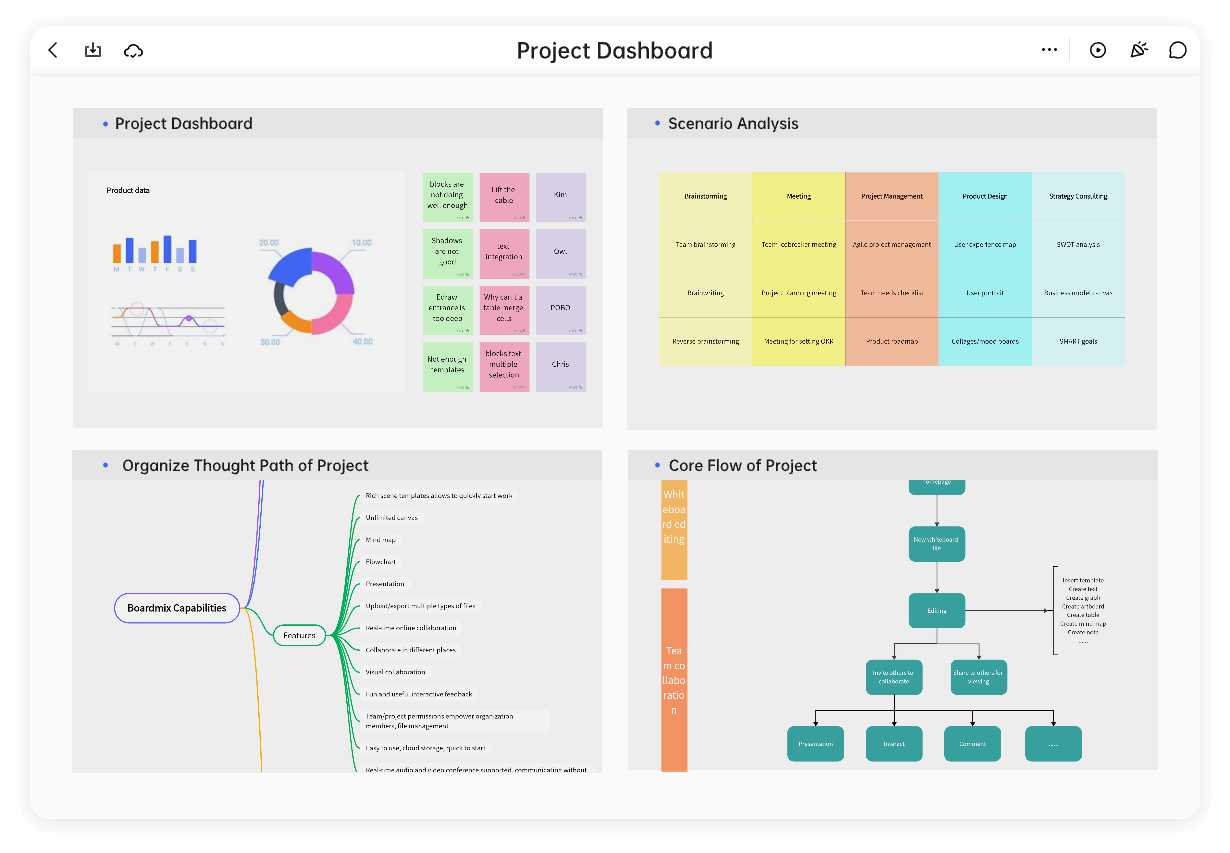
2. Choose The Right Team Members
Choosing the right team members is crucial for project success. It involves selecting individuals whose skills complement each other, ensuring a well-rounded team. This approach covers all aspects of your projects effectively, promotes collaboration, and fosters innovation. Therefore, consider not just individual abilities but also how they synergize with others to drive project success when forming your team.
3. Create A Clear Project Plan
A well-defined project plan serves as a roadmap, providing clear direction and setting the course for your team's journey towards achieving project goals. It outlines the tasks, timelines, resources, and milestones, offering a comprehensive view of the project's trajectory. This clarity helps keep everyone on track, ensuring that all team members understand their roles, responsibilities, and deadlines. Thus, a well-crafted plan is instrumental in maintaining focus and fostering coordination among team members.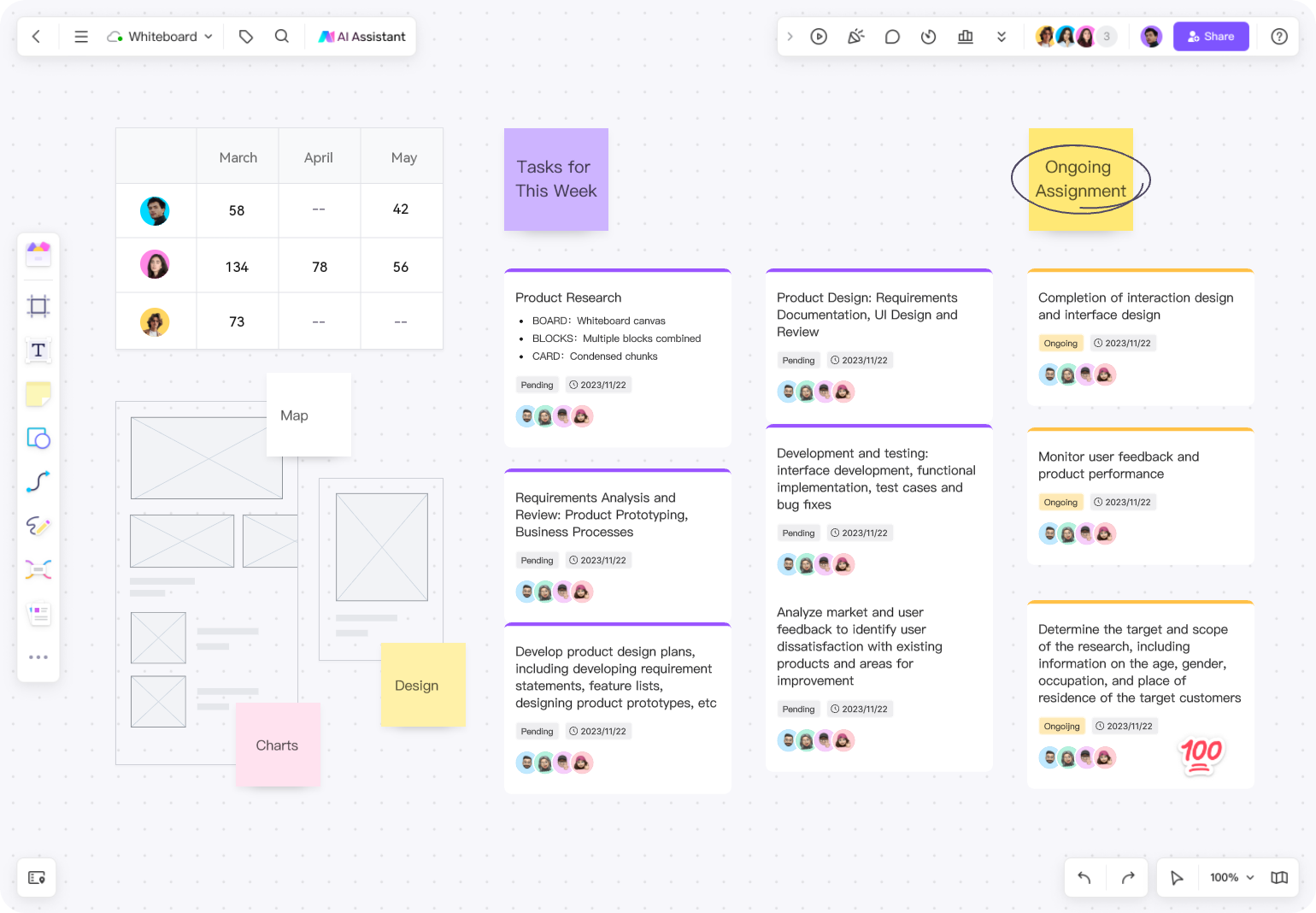
4. Define Roles and Responsibilities
Clearly defining each member's role within the project team is a crucial step towards effective project management. It eliminates confusion by outlining who is responsible for what, thereby preventing overlaps or gaps in task execution. Moreover, it fosters accountability as each member understands their specific contributions towards achieving the project goals. This clarity not only enhances efficiency but also promotes a sense of ownership and commitment among team members.
5. Keep Communication Open
Regular and open communication is the lifeblood of any successful project team. It fosters a culture of transparency, ensuring that all team members are on the same page regarding project goals, progress, and challenges. This openness encourages the sharing of ideas and feedback, leading to improved problem-solving capabilities as diverse perspectives come together to tackle issues. Thus, regular communication not only strengthens team cohesion but also enhances collective intelligence and decision-making.
Conclusion
Building an effective project team necessitates a deep understanding of the diverse roles within it and empowering these roles with clear, well-defined plans and responsibilities. Open lines of communication are essential to foster transparency and collaboration. Equipping the team with the right tools, like Boardmix - an online whiteboard tool, further enhances efficiency. Boardmix facilitates seamless collaboration and efficient task management, making it a valuable asset for any project team.







